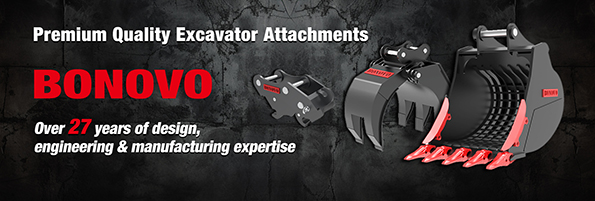Oil water, an ageless topic. Many digging friends have put forward the problem of oil water, today we will talk about the causes and consequences of oil water. Engine oil water is a common fault in the use of internal combustion engine, oil water, if not timely treatment will cause more serious consequences, such as cylinder, pull and other failures, more serious will make the engine scrapped, therefore, let the water away from the oil is a must always pay attention to the problem.
Since engine oil water is a common fault in the use of internal combustion engines, how should we judge the oil water? How should we find the cause of oil water? Let's take a quick look at these issues.
First, how to judge oil water
1, if the amount of water contained in the engine oil is relatively large, the oil level of the oil will rise. At this point, we can judge by the dipstick.
Once the water content in the oil is too high, the liquid level of the oil will exceed the range marked by the dipstick, which is easy to identify.
2. Check whether the engine coolant contains oil. If some parts of the engine are damaged, then the engine coolant will enter the lubrication system, and then the oil is often found in the coolant, so checking whether the engine coolant contains oil is also a way to check whether the oil is in the water.
3, carefully observe the appearance of the oil, you can also easily determine whether the oil contains water. Oil without water will appear translucent oily bright color, while oil containing water will appear opaque brown or earthy yellow.
If the oil contains water, then after the engine runs for a period of time, the oil will appear milky white, and accompanied by foam. This is due to the high temperature inside the engine, the oil and the coolant chemical reaction, the oil will be emulsified into emulsion.
Second, what are the consequences of oil water
Light oil water will lead to the engine temperature is too high, heavy will lead to cylinder holding tile and other failures, more serious will lead to engine scrap. So, what is the mechanism that causes these failures?
1, under normal circumstances, the water content of the oil is below 0.03%, if the water content is more than 0.1%, the additives in the lubricating oil (such as antioxidants, cleaning dispersants, etc.) will react with water and fail, and the performance of the oil will decline.
2, under the high temperature action inside the engine, the oil will chemically react with the coolant, the oil will be emulsified, and the lubrication effect of the oil will be reduced a lot.
3, after the antioxidant performance of the oil decreases, the organic acid generated by the oxidation of the oil will react with water to produce inorganic acid, and these acidic substances will cause corrosion to the engine parts, resulting in rust or damage to the parts.
Three, the main reasons for oil water
1, oil radiator damage resulting in oil water.
The radiator pipe is broken, and the water outside the radiator will penetrate into the oil radiator, resulting in oil water.
2. Engine water plugging water leads to oil water.
After several years of engine use, due to the corrosion of scale, some water blocked rust through, resulting in cooling water from the water channel into the oil channel, down to the oil pan. This situation is also very common, so always check for water congestion.
3, cylinder liner sealing ring damage will lead to oil water.
The wet cylinder liner is directly in contact with the cooling water, and the sealing ring at the bottom of the cylinder liner can effectively prevent the leakage of oil and cooling water. In use, the sealing ring bears a certain pressure, and sometimes the poor water quality of the cooling water causes corrosion, and the sealing ring is easy to fail after the engine runs for a long time.
Cylinder liner seal damage is a major cause of oil water, so when checking the cause of oil water, we must remember to check whether the cylinder liner seal is intact.
4, cylinder liner cracks easily lead to oil water.
When the heating cylinder liner is in direct contact with the cooling water, it is easy to crack, once the crack occurs, the cooling water will directly enter the cylinder and enter the oil pan through the cylinder wall, which will make the oil white, and the oil white will lead to poor engine combustion, white smoke and other problems.
Under normal circumstances, the cylinder liner is not easy to crack, unless there is improper maintenance will occur such problems, such as cold winter, cooling water is not added antifreeze resulting in icing, this situation may make the cylinder liner crack. There is the hot cylinder liner meets the relatively cold cooling water and so on.
5, cylinder gasket damage resulting in oil water.
The function of the engine cylinder pad is to seal each cylinder and the corresponding water channel and oil oil passage of each cylinder, so as to avoid oil water. If the cylinder gasket is damaged and the speed of water circulation is fast, the water in the water channel will flow into the oil oil channel, causing the oil water.
Cylinder gasket damage is also one of the important reasons for oil water, after each disassembly of the machine, try to use a new cylinder gasket, so as to avoid cylinder gasket leakage caused by oil leakage resulting in engine damage.
In SUMMARY:
Engine oil water can be said to be a common failure of internal combustion engines, and we can judge whether the oil is water by several aspects such as the appearance of the oil color, the oil level height of the oil, and the observation of the oil coolant. If the oil water is found, we can also check the oil radiator, water plug, cylinder liner seal ring, cylinder liner, cylinder gasket and other aspects to determine the cause of the oil water.
Choose BONOVO for high-quality, customizable brush cutters for skid steers with fast delivery. Contact us today to discover how our superior products can enhance your land management tasks!
for more info just visit our website at www.bonovogroup.com
contact # : +86 158 6218 2088
email : sales@bonovogroup.com
Excavator oil water how to do?
- BONOVO
- Counselor
- Posts: 655
- Joined: Oct 17th, '24, 02:50
- Location: China

